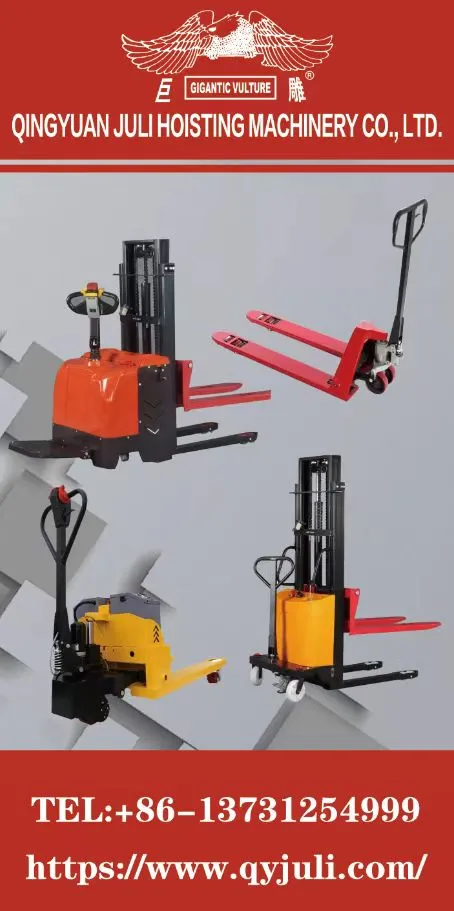


The Importance of Warehouse Pallet Trucks in Modern Supply Chain Management
In today’s fast-paced industrial environment, the efficiency of warehousing operations plays a crucial role in supply chain management. A significant factor that contributes to this efficiency is the use of pallet trucks. These indispensable tools facilitate the movement of goods within a warehouse, enhancing productivity and operational effectiveness.
Understanding Pallet Trucks
Pallet trucks, also known as pallet jacks, are designed to lift and transport palletized loads within a warehouse. They come in various designs, including manual, electric, and more advanced models featuring integrated scales or lifting mechanisms. The choice of pallet truck often depends on the specific operational needs of a business, including the weight and size of the loads, the layout of the warehouse, and the frequency of use.
Enhancing Efficiency
One of the foremost advantages of using pallet trucks is the improvement in operational efficiency. With the ability to move heavy loads easily, warehouse staff can quickly transport items from one location to another without the need for heavy lifting. This not only speeds up the process of restocking shelves but also streamlines order fulfillment operations. With fewer manual handling tasks involved, the risk of workplace injuries decreases significantly, contributing to a safer working environment.
Moreover, pallet trucks are designed to maneuver in narrow aisles and tight spaces, making them ideal for maximizing storage capacity. More sophisticated models, such as electric pallet trucks, can handle heavier loads with minimal effort, allowing operators to work smarter rather than harder. Companies can then allocate their human resources to more strategic tasks that require specialized skills, thus optimizing labor efficiency.
Cost-Effectiveness
From a financial perspective, investing in pallet trucks can lead to substantial savings over time. They reduce the need for expensive material handling systems, such as forklifts, especially in smaller warehouses. While forklifts are excellent for moving heavy loads over long distances, pallet trucks are more economical for short hauls. Additionally, the maintenance costs for pallet trucks are generally lower compared to motorized equipment.

Businesses can also benefit from the increased throughput generated by more efficient material handling. As orders are processed faster and inventory management improves, the cost savings can be significant. Ultimately, pallet trucks provide a cost-effective solution for companies looking to enhance their warehousing capabilities.
Flexibility and Adaptability
In a rapidly changing market, the ability to adapt to fluctuating demands is vital. Pallet trucks offer tremendous flexibility, accommodating various types of pallets, including standard, Euro, and customized sizes. This adaptability is particularly important for businesses that deal with different types of merchandise or experience seasonal changes in inventory levels.
Furthermore, as e-commerce continues to grow, the need for nimble warehousing solutions becomes crucial. Pallet trucks enable warehouses to quickly adapt to changing order patterns, ensuring that businesses can respond to customer demands without significant downtime.
Environmental Impact
Another important aspect to consider is the environmental impact of warehouse operations. Many manufacturers now offer eco-friendly pallet trucks, including those made from sustainable materials or designed for energy efficiency. Electric models, in particular, produce zero emissions at the point of use, contributing to a more sustainable operation. Using pallet trucks can also reduce the overall carbon footprint of material handling processes, aligning with corporate social responsibility initiatives.
Conclusion
In conclusion, warehouse pallet trucks are a vital component of modern supply chain management. They enhance efficiency, reduce operational costs, offer flexibility, and contribute to sustainable practices. As businesses continue to seek ways to optimize their warehousing operations, the adoption of pallet trucks will likely grow, affirming their position as essential tools in enhancing the overall effectiveness of logistics processes. By recognizing their importance and implementing them effectively, companies can ensure they remain competitive in an increasingly demanding marketplace. Investing in pallet trucks might seem like a simple decision, but their benefits resonate throughout the entire supply chain, redefining how goods are handled and transported within the warehouse.



